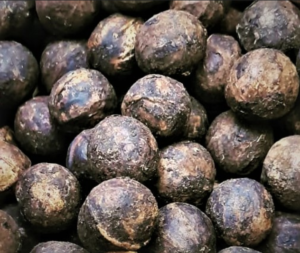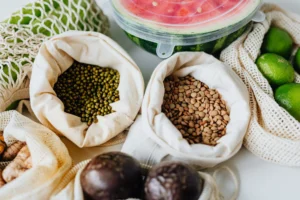In the quest for healthier eating habits many of us are turning to natural sweeteners to replace refined sugars in our diets. Earlier we covered the top 5 natural sweeteners. Today we bring yet another lesser-known alternative which is the Medjool date. It is prized for its natural sweetness and several health benefits. Let’s delve into understanding why Medjool Dates are a good natural sweetener
A Brief History of Medjool Dates
Medjool dates have been cultivated for centuries in the Middle East and North Africa. They are often referred to as the “king of dates,”. They originated from Morocco and were historically reserved for royalty and esteemed guests due to their prized flavor and nutritional richness. With time, Medjool dates spread to other regions with suitable climates for cultivation, including the United States.
Nutritional Profile of Medjool Dates
Medjool dates are not only renowned for their sweet taste but also their impressive nutritional composition. They are rich in natural sugars such as glucose and fructose which makes them an excellent source of quick energy. Additionally, Medjool dates also contain essential vitamins and minerals, including potassium, magnesium, vitamin B6, and fiber.
Medjool Dates vs. Refined Sugar
Compared to refined sugar Medjool dates provide a more wholesome sweetening option. This is because refined sugar offers empty calories and negligible nutritional value. While both sources contribute to calorie intake, Medjool dates offer additional health benefits, such as improved digestion and sustained energy release.
Health Benefits of Consuming Medjool Dates

Digestive Health
The high fiber content in Medjool dates promotes digestive health by supporting regular bowel movements and preventing constipation. Additionally, the soluble fiber found in dates may help regulate blood sugar levels and promote feelings of fullness, aiding in weight management.
Nutrient Absorption
Medjool dates contain essential nutrients, such as vitamins and minerals, that support overall health and well-being. Consuming Medjool dates alongside nutrient-rich foods can enhance nutrient absorption and optimize the body’s utilization of these vital compounds[1].
Sustained Energy Release
Unlike refined sugars, which can cause rapid spikes and crashes in blood sugar levels, the natural sugars in Medjool dates are released more gradually into the bloodstream. This results in sustained energy levels and prevents the energy crashes associated with consuming high-glycemic foods.
Understanding Medjool Date Sugar Content
While Medjool dates are naturally sweet, they also contain sugar and should be consumed in moderation, especially by individuals with diabetes or those monitoring their sugar intake. One Medjool date contains approximately 16 grams of sugar, primarily in the form of glucose and fructose.
Incorporating Medjool Dates into Your Diet

There are numerous ways to enjoy the sweet and caramel-like flavor of Medjool dates in your diet. You can eat them fresh as a snack, add them to smoothies, or as a natural sweetener in baking and blending.
Here’s a brief list of recipes featuring Medjool dates
- Medjool Date Energy Balls: Blend Medjool dates with nuts, seeds, and a touch of coconut oil, then roll them into bite-sized balls for a nutritious snack.
- Medjool Date Smoothie: Combine Medjool dates with your favorite fruits, leafy greens, yogurt, or plant-based milk, and a dash of cinnamon for a naturally sweet smoothie.
- Medjool Date Oatmeal Cookies: Replace refined sugar with pureed Medjool dates in your favorite oatmeal cookie recipe for a naturally sweetened treat.
- Stuffed Medjool Dates: Remove the pits from Medjool dates and fill them with nut butter, soft cheese, or a mixture of chopped nuts and dried fruits for a simple snack.
- Medjool Date Salad Dressing: Blend Medjool dates with olive oil, balsamic vinegar, Dijon mustard, and a squeeze of lemon juice for a sweet and tangy dressing to drizzle over salads or roasted vegetables.
Medjool Dates and Sustainability
Opting for Medjool dates as a natural sweetener aligns with principles of sustainability and eco-conscious living in several ways:
Reduced Environmental Impact
Medjool date palm trees require less water than many other fruit-bearing trees. This makes them a more sustainable choice for agricultural cultivation, particularly in arid regions. Additionally, Medjool date cultivation supports biodiversity and helps combat desertification in certain regions.
Minimal Processing
Unlike refined sugar, Medjool dates are a minimally processed food and retain their natural nutrients and flavors. When you choose Medjool dates over refined sugar, you reduce the environmental footprint associated with industrial food processing.
Supporting Local Agriculture

By purchasing Medjool dates from local growers or sustainable sources, you can support small-scale agriculture and local economies. This also reduces the carbon footprint associated with long-distance transportation.
Conclusion
In summary, Medjool dates present a delightful and healthful substitute for refined sugar and provide plenty of nutritional advantages while also contributing to a reduced environmental footprint. We’d love to hear about your experiences with Medjool dates and your favorite ways to incorporate them into your diet! Share your thoughts and recipes with us.





